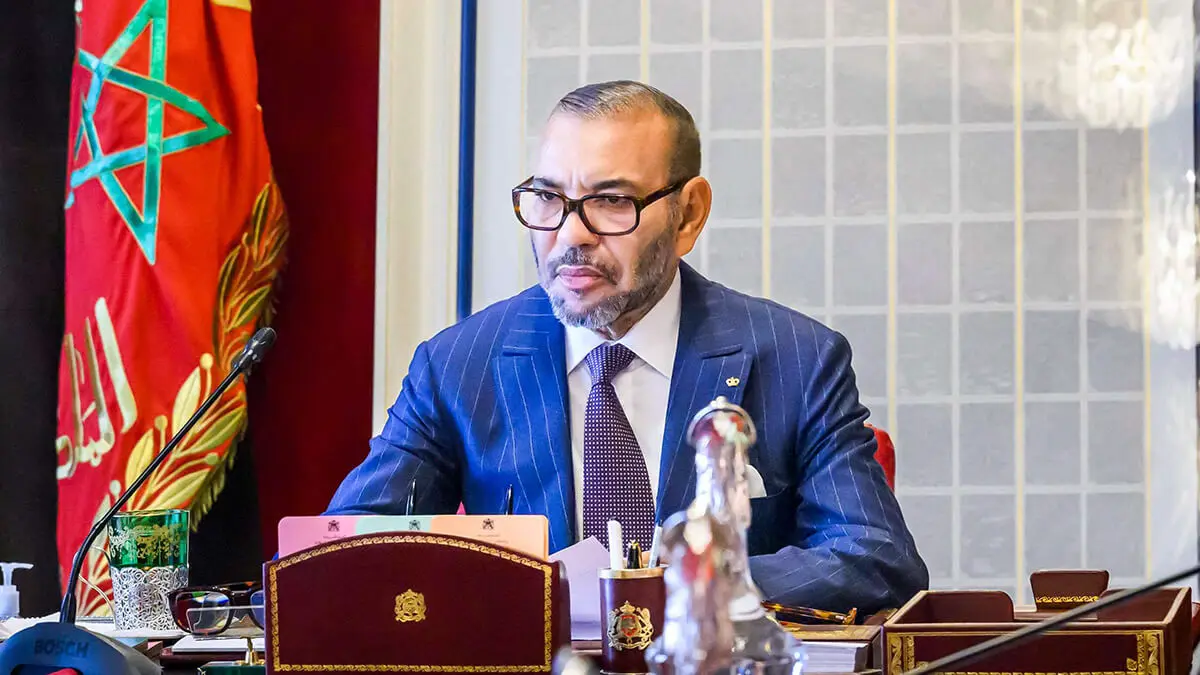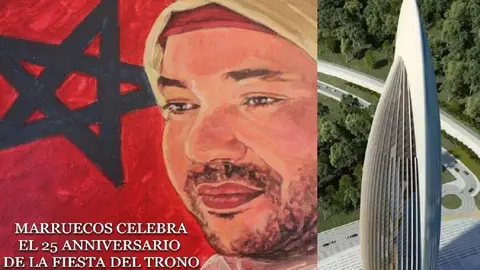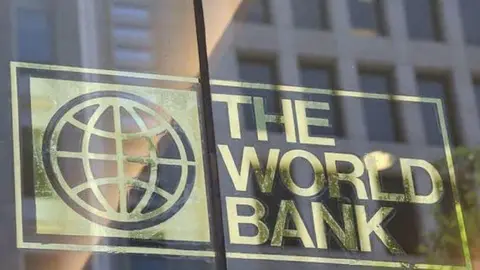Metamorphosis of the Kingdom

One only has to look at the spectacular evolution of GDP over the 25 years of his reign to see the enormous work carried out by the monarch. GDP grew by nearly 60%, from $80 billion to more than $145 billion for a country that, for the time being, has no hydrocarbons.
In the initial stage, he obtained the approval of the highest financial bodies - the World Bank and the IMF - for the construction of take-off infrastructures, and then embarked on a comprehensive programme of political, social, economic and fiscal reforms of the first order; a declaration of his will to open up to the world, to democracy, to the global economy and to social welfare.
And all of a sudden, major projects are underway across the length and breadth of the Kingdom. These include the successful Tangier Med port project and now the Dakhla Atlantique, the Tangier-Casablanca high-speed train linking Marrakech in 2029 and Agadir in 2040, highways and motorways, as well as the liberalisation of land for housing, commercial, industrial, sports and leisure areas to support economic development.
The Mudawana reform (2004) extends women's rights and the National Initiative for Human Development (INDH) is promoted with participatory programmes to support individual and collective entrepreneurship and to combat illiteracy, poverty and precariousness.
A wide-ranging programme is being set up to bring social justice to the Moroccan people, who are already feeling the positive effects of this progress, which is broadening the base of the social class. At the same time, compulsory health insurance (SMO), direct social benefits for families with or without children or those with dependent elderly dependents, and assistance of up to 10,000 euros for the purchase of a primary residence are being introduced; unemployment insurance is planned for 2025.
Large public investments and their multiplier effect boost the economy, affecting all aspects of the Kingdom's development. Traditional sectors such as phosphates and derivatives, textiles and fishing are being renewed and strengthened, making them more productive, as is tourism, a source of foreign currency, which is making a comeback with renewed infrastructures, reaching the 15 million visitor mark. Or agriculture, which now combines with the food industry to create significant added value, raising factor productivity and the volume of GDP, improving the balance of payments by increasing exports.
After this initial take-off, the Kingdom moved on to the industrialisation phase. The Mohammed VI Fund is created (2021), the New Development Model is adopted (2021) and a new Investment Charter (2022). These are essential elements for maintaining an adequate level of investment (12% of GDP), capable of pulling the national product by diversifying it, giving priority to technological industries, which are now seen as a variable to be weighed up, struggling to displace the traditional sectors.
They are de facto inserted into the international value chains of aeronautics, automobiles and renewable energies in order to be their main operator. Nor is the arms industry lagging behind, which is starting up in partnership with leading global producers.
The environment is another of King Mohammed VI's major concerns, as he strengthens his commitment to the fight against climate change and in favour of sustainable development following the Marrakech Climate Summit (COP16). The world's largest solar power plant ‘Nour’ and wind farms were created, establishing the objective of 100% clean energy by 2050, thus reconverting the way of producing and conceiving a totally green GDP; and the production of green hydrogen is currently being managed with its European partners (Germany and Belgium).
It should be noted that this whole process of transformation is being carried out on the basis of an exchange rate reform that manages to reinforce the stability of the dirham and the foreign exchange reserve, as well as allowing easy access to international financial markets and attracting foreign direct investment (FDI).
A privileged partner of the major powers, the EU, the United States, the United Kingdom, Russia and China, Morocco is rooted in the African continent long before its re-entry into the African Union (2017). It consolidates South-South cooperation and aims to turn the Kingdom into the locomotive of Africa, currently standing out as its leading African investor; in addition to making available to it the Port of Dakhla Atlantic and a land corridor, currently underway, with a hub of operations in the Southern Provinces.
The enormous work carried out by King Mohammed VI has succeeded in transforming the face of the Kingdom from Tangiers to La Guera, whose geo-economic and geopolitical scope is indisputable.
Neither the shockwave of the ‘Arab Spring’ (2010), which did not provoke major upheavals as in Tunisia, Egypt, Syria or Libya, but rather democratic progress with the adoption of the new Constitution (2011), nor the efficiently managed COVID-19 health emergency, were able to stop it; Nor do the threats from the terrorist state of Algeria and its ‘Polisario’ (Polisario+Iranian) mercenaries, who have meanwhile suffered major diplomatic and military setbacks since the failed blockade of the El Guergarat border post (2020).
The so-called ‘Sahara dossier’ is concluded and Algeria is as defeated as it is collapsed. It can do nothing more for the Polisario than bury it. Especially after the support of the US, Germany, Spain and very recently France, and the international community in general, for Morocco's sovereignty plan over its Southern Provinces.
The key factors behind the Kingdom's prosperity and modernity lie above all in the effective supervision of King Mohammed VI. A dedicated king, at the service of his ‘dear people’, an expression he uses to address the umma, providing real solutions, without triumphalism. Far from any improvisation or political propaganda or electoral promises.
Endowed with the strategic vision of a serious and realistic leader, he succeeds in bringing this metamorphosis to fruition, building confidence and consolidating the Kingdom's influence on the regional and global diplomatic scene, placing it among the economically and politically influential countries on the rise.
Proof of this is its excellent international alliances with its partners in the areas of trade, security and immigration, especially with its neighbour, the Kingdom of Spain.
However, to say that everything has been done would be misleading. Indeed, King Mohammed VI is aware of the immense task that lies ahead after this initial momentum. However, all the conditions are in place for a definitive take-off towards the maturity stage (following the Rostow stages), where technology would be the spearhead of all economic activity, whose productivity would guarantee constant investment in R&D and a permanent improvement in per capita income and social welfare.
This will require a radical change of attitude on the part of the social, political and administrative structures which, at present, do not support this enormous waste of energy.
The public administration and Moroccan society remain mired in the scourge of corruption, which the High Commissioner for the Plan, Ahmed Lahlimi, in charge of the Kingdom's socio-economic analysis and prospects, describes as a ‘brake on growth’.



